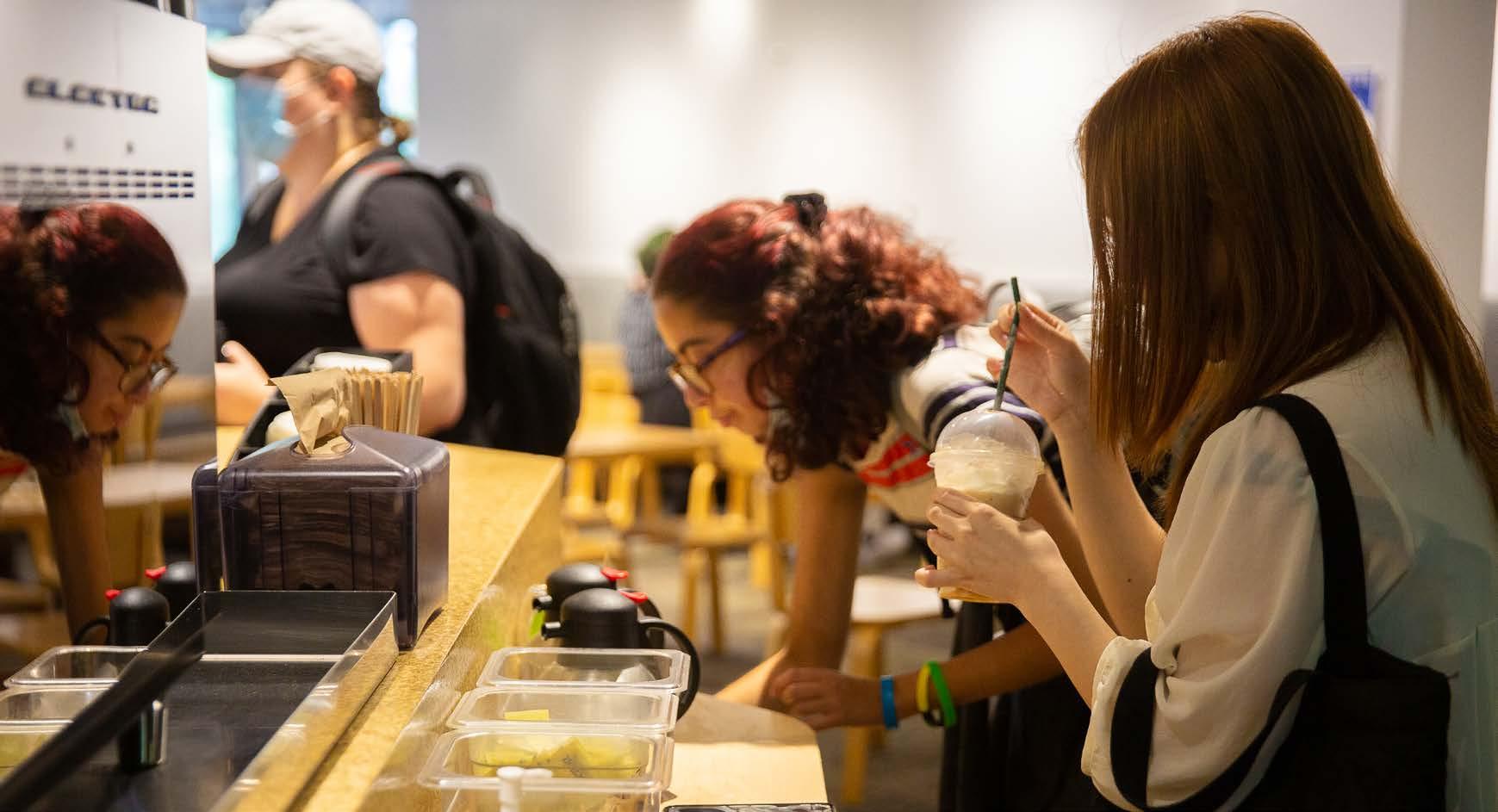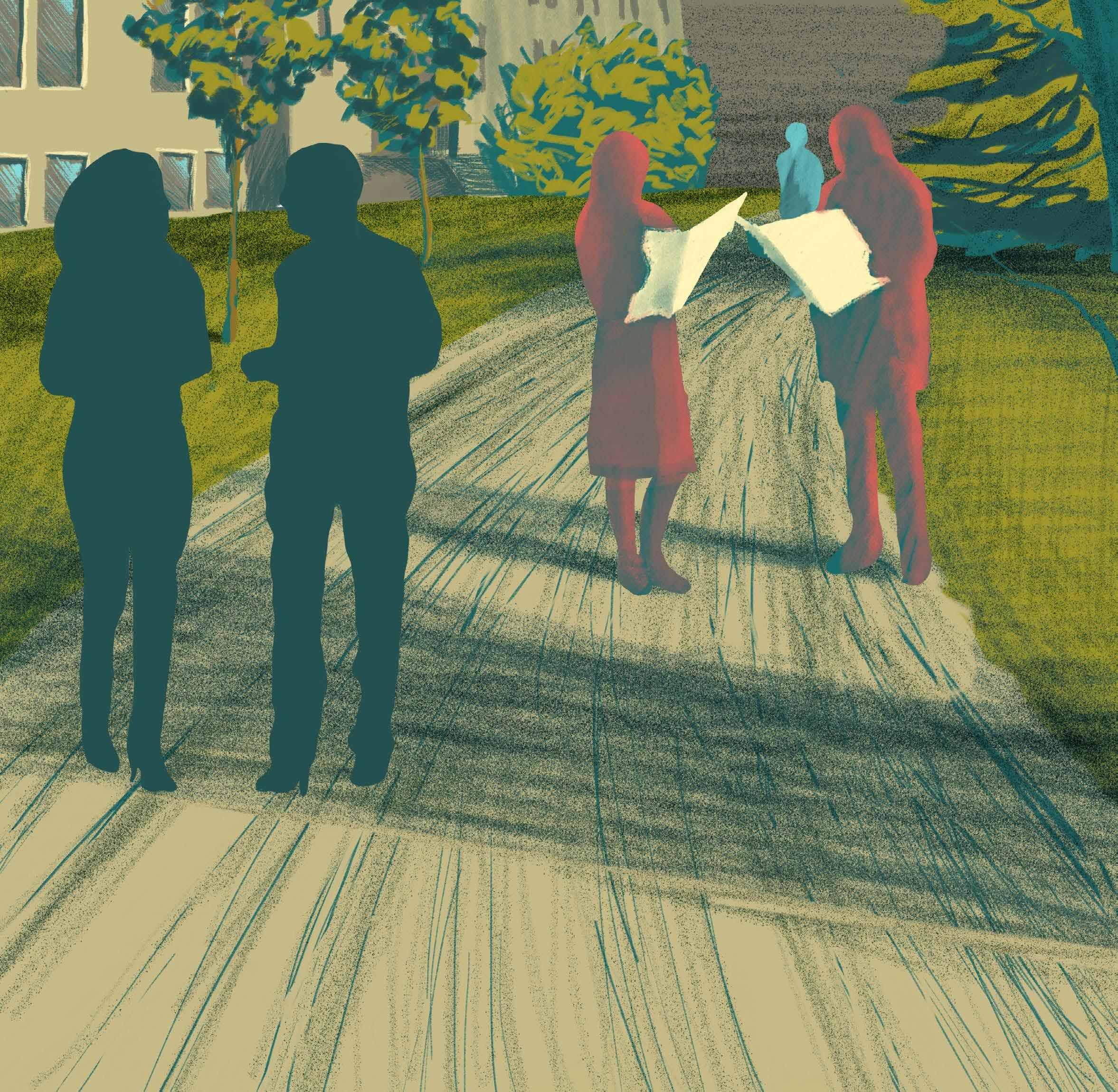
4 minute read
News pages 3 to
from 7 September 2022
Website helps Indigenous students search for supports
Horizon provides searchable database of resources
Colton McKillop, staff
A new website hosted by the Manitoba Industry-Academia Partnership (MI-AP) as part of the Manitoba Collaborative Indigenous Education Blueprint (MCIEB) will make it easier for Indigenous post-secondary students to find and access resources to assist them with their studies.
Horizon is a searchable database of supports available to Indigenous students that includes academic, financial, housing and transportation services.
Denise Tardiff, the manager of the MCIEB, said the inspiration for Horizon was the frustration students encountered when trying to find resources or supports for their post-secondary education.
“Often, the words that you might choose to Google won’t necessarily yield the results that you’re looking for,” she said.
“You could go on a government site and find what the department of education had for supports and services, or you could go to industry and the Business Council of Manitoba and if you were on their website you might discover that they have an Indigenous awards program, but there wasn’t a consolidated list or place to look. So, that was why Horizon was born.”
MCIEB is an initiative aiming to increase access to education for Indigenous students within the province, and to include Indigenous material in education at all levels.
“The Manitoba Collaborative Indigenous Education Blueprint is essentially a signatory document that has ten commitments, which were based on the TRC’s calls to action as they relate to education,” Tardiff said.
Manitoba’s universities and colleges signed onto the MCIEB in 2015.
Tardiff said that everything on the new site has been “painstakingly tagged” to indicate what need a specific listed resource might address.
“As long as they can identify the need that they have, they can search the database that way and it will bring up from across the province, no matter what the source, it will bring up the service that is appropriate for them,” she said.
Tardiff pointed out that many non-urban Indigenous students leave behind their communities, families and support systems to come to university.
“Without some of those
/ staff Ebunoluwa Akinbo photo /
safety nets that urban students might be more likely to have, that just compounds the difficulty that they face,” she said.
“They wind up dealing with just a lot of logistics and bureaucracy instead of being able to use their energy to concentrate on their program of study and their academics.”
She hopes the website will be useful for Indigenous students in remote and northern communities who may not have “experience navigating large organizations and institutions” due to unreliable internet access.
“I would say that being able to do good research and source out those needed supports is actually a skill,” she explained.
“That’s quite a big barrier now that everything is all online, so this I hope serves to even things up in that way.”
news@themanitoban.com
Nearly 169,000 study permits awaiting approval
Colton McKillop, staff
S ome international students may have to delay their post-secondary studies as Immigration, Refugees and Citizenship Canada (IRCC) faces a backlog of study permits.
Almost 169,000 study permits are awaiting approval from IRCC as of Aug. 15, although it is unknown how many applicants were scheduled to begin classes this semester.
The government said that travel restrictions implemented during the COVID-19 pandemic and updates to outdated technology have created the delays, along with an unprecedented number of applications. They also named the war in Ukraine as a contributing factor.
Kunal Rajpal, international community representative for the University of Manitoba Students’ Union (UMSU), said the pandemic “delayed everything.”
“For a long period of time government wasn’t able to process any sort of application, whether it be for study permit extensions or visas,” he said.
Ottawa has promised to concentrate on approving study permits after spending the summer focused on processing work permits to combat the labour shortage.
Rajpal said the government “hasn’t communicated well enough or clearly enough” what its next steps are.
“They have a work permit backlog, there’s a study permit backlog and government keeps making promises that they’re not fulfilling,” he said.
He said that he was able to get his study permit, but that some of his friends have been affected by the backlog.
The U of M has advised international students that these delays may prevent them from starting school this semester, forcing many to defer to winter term or reapply next year.
Rajpal said the university “hasn’t been able to do anything solid for students who are affected by this shortage,” and that many students are switching to online learning because of IRCC’s delay.
IRCC predicts that wait times will lessen within the next few months, and that work and study permits will be processed at normal speeds by the end of the year.
The government has processed roughly 360,000 study permits this year, an increase of 17 per cent over the 306,000 processed in the same timeframe in 2021. 20 per cent of University of Manitoba students are international students and they pay triple the tuition of Canadian students.
“They are using international students as cash cows to funnel money into their economies,” Rajpal said.
“It makes us feel exactly like that, as cash cows, which is really unfair,” he explained.
“We are being treated as second class citizens. We are not even being given the same rights, and we are being charged more for everything.”
IRCC is looking to hire 1,250 new employees by the end of fall to deal with the backlog and will begin providing monthly updates on the number of applications delayed, as well as their progress in approving them.
news@themanitoban.com





